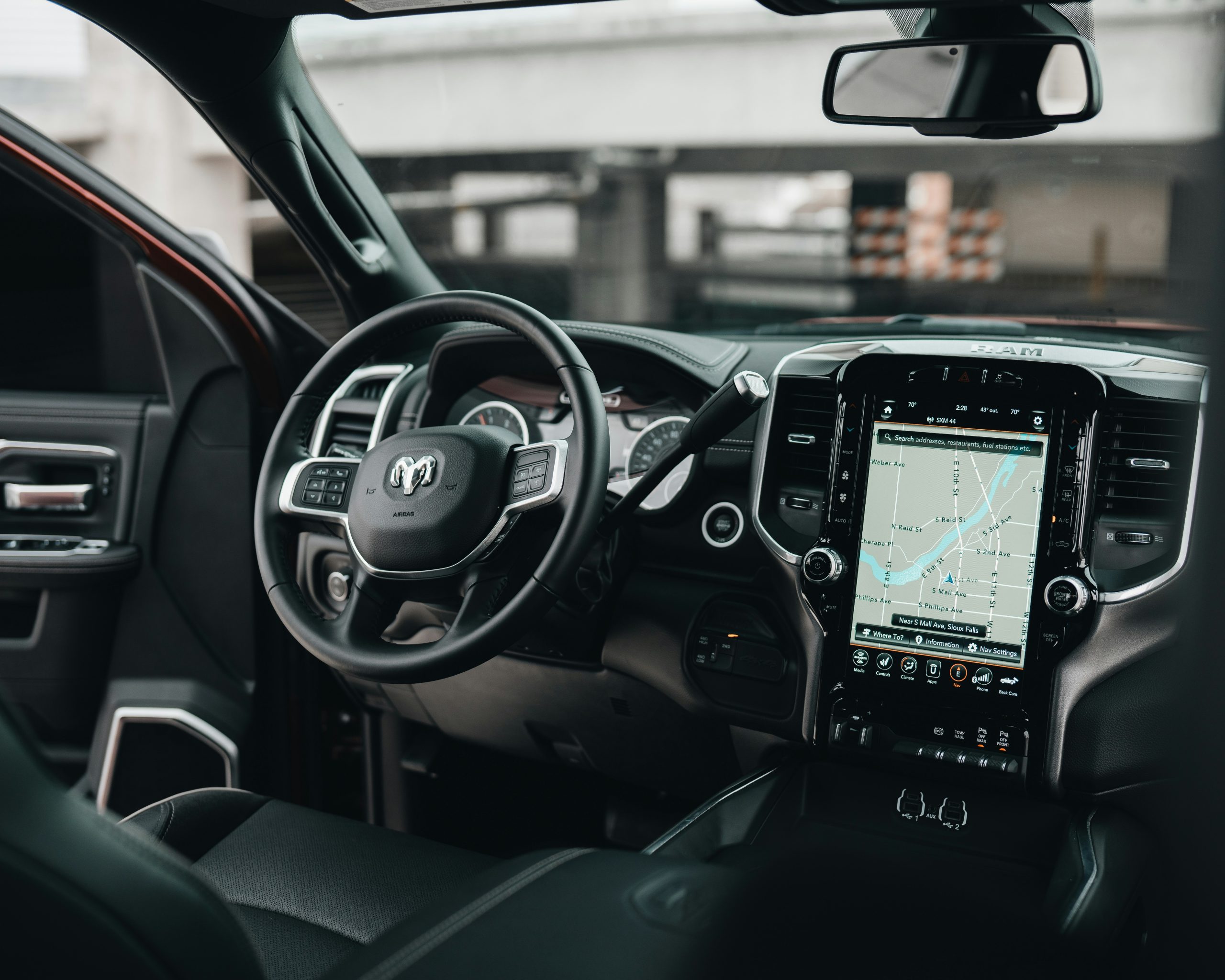As we move towards a future with autonomous vehicles on our roads, there are many factors to consider. From safety technology to ethical implications and regulatory decisions, the landscape of driving is changing drastically. You’ve probably wondered how these vehicles will interact with human drivers, pedestrians, and the environment as a whole. Will they make our roads safer? Who will be responsible in case of an accident? How will they make split-second decisions in critical situations? This article dives deep into these considerations and more, with a focus on safety, ethics, and regulations that will shape the future of autonomous vehicles.
Safety Technology in Autonomous Vehicles
Autonomous vehicles, also known as self-driving cars, promise to revolutionise the world of transportation. They have the potential to reduce, if not eliminate, the human error that accounts for a significant percentage of road accidents. But how exactly will they do this? To answer this, we must delve into the advanced safety technologies that these vehicles are equipped with.
Also read : The advantages of using the GPT Chatbot for your business
The cornerstone of an autonomous vehicle is its ability to perceive its surroundings. This is achieved using a combination of sensors such as cameras, radar, and LiDAR, which stands for Light Detection and Ranging. These sensors allow the vehicle to create a 3D map of its environment, detect objects, and determine their distance and speed.
This data is then processed by sophisticated algorithms which decide the vehicle’s next move, whether it’s changing lanes, overtaking, or stopping. Advanced Driver Assistance Systems (ADAS), such as adaptive cruise control, lane-keeping assist, and automatic emergency braking, further enhance the safety capabilities of these vehicles.
In the same genre : How is quantum computing reshaping cybersecurity?
However, it’s important to understand that these technologies are not infallible. They must be continually tested and refined to ensure their effectiveness across a broad range of conditions, including adverse weather and unexpected road situations.
Ethical Implications of Autonomous Vehicles
While the technology behind autonomous vehicles has advanced significantly, it opens up a new realm of ethical dilemmas. One common scenario is the ‘trolley problem,’ where the car must decide between causing harm to its passengers or to pedestrians in the event of an unavoidable accident.
This raises a series of questions: Should the car prioritize the safety of the passengers or the pedestrians? Who programs these decision-making algorithms, and what ethical framework do they follow? How can a machine make a moral decision that even humans struggle with? These are not easy questions to answer, and they highlight the complexity of the ethical issues surrounding autonomous vehicles.
Furthermore, there is the issue of data privacy. Autonomous cars generate a vast amount of data about their routes, passengers, and driving patterns. This data could be used to improve the performance and safety of these vehicles. However, it could also be exploited for commercial gain or even malicious purposes if it falls into the wrong hands. The onus, therefore, is on the manufacturers and regulators to ensure that there are robust safeguards in place to protect this data.
Regulations Governing Autonomous Vehicles
The legal landscape for autonomous vehicles is still evolving. As it stands, there is a patchwork of regulations at the local, national, and international levels, with no uniform standards. These regulations cover various aspects, such as safety requirements, testing procedures, and liability in case of accidents.
For example, in the U.S., the National Highway Traffic Safety Administration (NHTSA) has issued guidelines for the safe testing and deployment of autonomous vehicles. Meanwhile, the European Union has proposed amendments to the Vienna Convention on Road Traffic, which currently mandates a human driver at all times.
One of the biggest regulatory challenges is determining liability in case of an accident. Is it the vehicle manufacturer, the software provider, the owner, or the passenger who is responsible? The answer to this will have far-reaching implications for insurance companies, car manufacturers, and consumers alike.
Another key area of regulation is cybersecurity. With autonomous vehicles heavily reliant on software and connected to various networks, they are potentially susceptible to hacking. Therefore, regulations must ensure that these vehicles have robust security measures in place to protect against cyber threats.
Public Perception of Autonomous Vehicles
Despite the promise of safer roads and increased mobility, autonomous vehicles have been met with mixed reactions from the public. Some people are excited about the convenience and safety benefits, while others express concerns about job losses, especially among professional drivers, and the potential for accidents due to technology failures.
Surveys have shown varying degrees of public acceptance and trust in autonomous vehicles. While some people are comfortable with the idea of a car driving itself, others are more cautious, preferring to maintain control over their vehicle. This suggests that the successful rollout of autonomous vehicles will not just depend on technology and regulations, but also on winning over public trust and acceptance.
Educating the public about the safety benefits and addressing their concerns will be crucial. This could involve public awareness campaigns, transparency about safety testing and performance, and even opportunities for people to experience riding in an autonomous vehicle to dispel fears and misconceptions.
The future of autonomous vehicles is a broad and complex topic, encompassing safety, ethics, regulations, and public perception. While these vehicles hold immense potential for transforming our roads and society, there are still many challenges to overcome. However, with continuous advancements in technology and active discussions and actions around regulations and ethics, the future seems promising.
The Role of Artificial Intelligence in Autonomous Vehicles
Artificial intelligence (AI) plays a crucial role in the functionality of autonomous vehicles, enabling them to perform complex tasks that usually require human intelligence. The AI system in an autonomous vehicle is primarily responsible for decision-making, performing actions like steering, accelerating, braking, and navigating.
Through machine learning algorithms, AI systems can learn from experience. They analyze vast amounts of data collected from various sensors, making it possible to recognize patterns and predict potential hazards. Therefore, the vehicles can make informed decisions that promote safety.
For instance, if an obstacle suddenly appears, the AI system quickly calculates the distance, speed, and possible avoidance maneuvers, deciding the best course of action within milliseconds. This level of precision and speed is something that a human driver might not always be capable of, especially under unexpected circumstances.
However, as impressive as these capabilities are, they also raise ethical considerations. The decision-making process of AI systems, especially in critical situations, must align with human ethics. This is particularly pertinent in scenarios similar to the trolley problem. How these systems should be programmed to respond in such situations remains a contentious issue, and addressing it is crucial to the acceptance and success of autonomous vehicles.
Data Privacy and Cybersecurity in Autonomous Driving
Autonomous vehicles continuously collect and process data to function effectively. This data includes information about the vehicle’s environment, its operational status, and sometimes, details about the passengers and their travel patterns. While this data is vital for improving the performance and safety features of these vehicles, it also presents potential risks to data privacy.
If not adequately protected, this information could be accessed and exploited for nefarious purposes, such as stalking, theft, or even sabotage. As such, manufacturers and authorities must implement robust data security measures to prevent unauthorized access and ensure data privacy.
Moreover, as highly connected systems, autonomous cars are susceptible to cyber threats. A successful hack into an autonomous driving system could lead to the hijacking of the vehicle, putting the lives of the passengers and others on the road at risk. Therefore, alongside data privacy, cybersecurity is a significant concern that needs stringent regulations and advanced technological solutions.
Conclusion
The future of autonomous vehicles indeed looks promising. These driverless cars have the potential to drastically improve public health by reducing accidents caused by human error, improving traffic efficiency, and providing mobility for those who currently cannot drive.
However, it’s not without challenges. Issues surrounding safety, the ethical decision-making of AI systems, regulations, data privacy, and cybersecurity need addressing. Moreover, public perception varies, and winning people’s trust will be a significant factor in the successful adoption of autonomous vehicles.
As of today, the 30th of November, 2023, we are witnessing continuous advancements in autonomous vehicle technology alongside active discussions and actions concerning regulations and ethics. It is a testament to the collective effort to overcome these challenges and realize the full potential of autonomous vehicles. The journey towards a future where autonomous cars are a common sight on our roads is well underway, and it is a journey filled with anticipation and high expectations.











